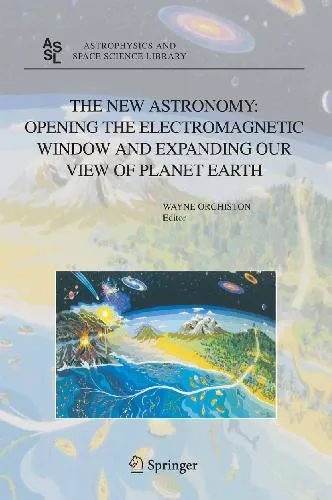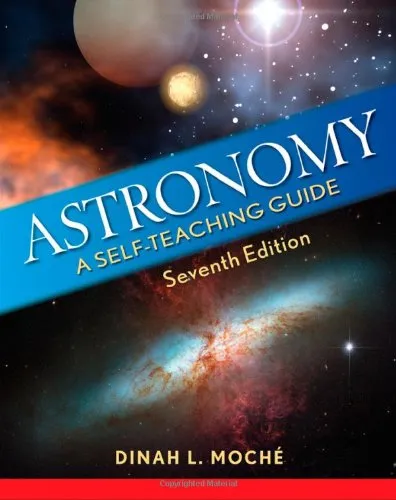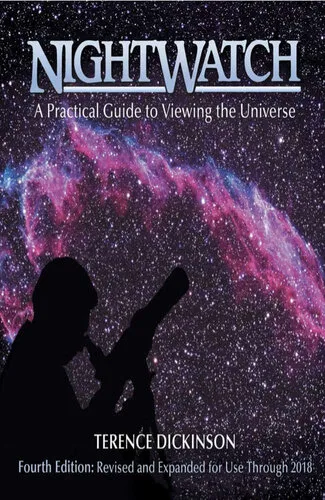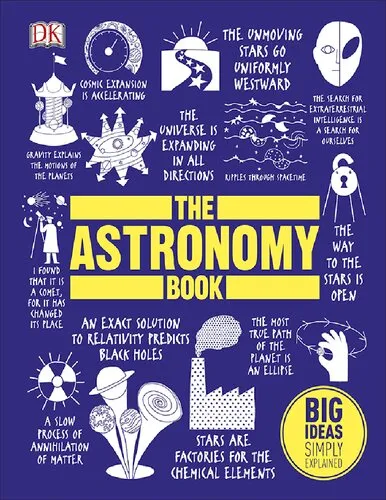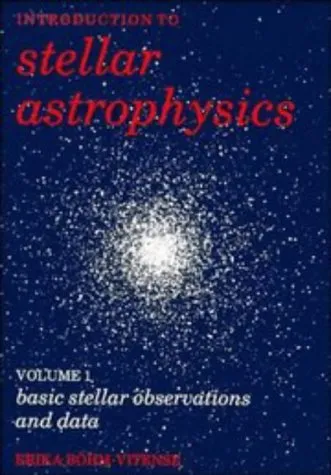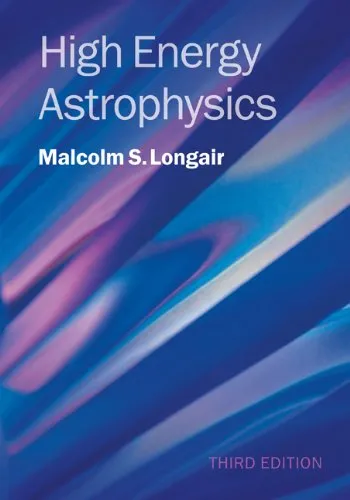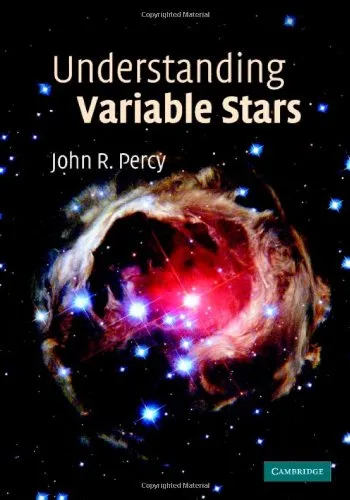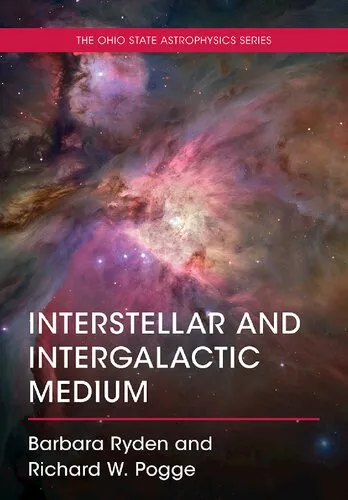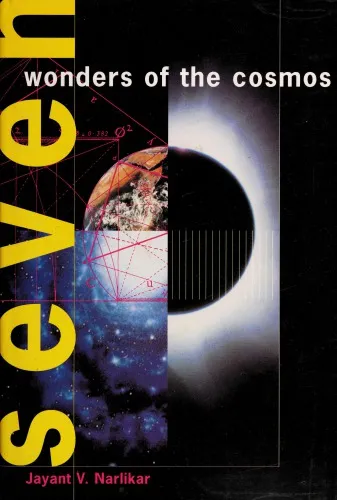Fundamentals of radio astronomy : observational methods
4.0
بر اساس نظر کاربران

شما میتونید سوالاتتون در باره کتاب رو از هوش مصنوعیش بعد از ورود بپرسید
هر دانلود یا پرسش از هوش مصنوعی 2 امتیاز لازم دارد، برای بدست آوردن امتیاز رایگان، به صفحه ی راهنمای امتیازات سر بزنید و یک سری کار ارزشمند انجام بدینکتاب های مرتبط:
مقدمهای بر کتاب "Fundamentals of Radio Astronomy: Observational Methods"
کتاب "Fundamentals of Radio Astronomy: Observational Methods" نوشته "Kurtz, Stanley"، "Marr, Jonathan M." و "Snell, Ronald Lee" یکی از منابع کلیدی و جامع در زمینه رادیو اخترشناسی است. این اثر به صورت تخصصی برای دانشجویان، پژوهشگران و علاقهمندان به اخترشناسی و علوم فضایی تدوین شده است. این کتاب با رویکردی ساختاریافته و دقیق، اصول و روشهای مشاهداتی در رادیو اخترشناسی را شرح میدهد و به خوانندگان امکان میدهد تا درک عمیقی از ابزارها، تکنیکها و تفسیر دادههای رادیو اخترشناسی به دست آورند.
خلاصهای از محتوای کتاب
این کتاب در چند بخش مهم سازماندهی شده است که هر بخش به یکی از جنبههای علمی و فنی رادیو اخترشناسی اختصاص دارد. نویسندگان در ابتدا تئوریهای پایهای مرتبط با امواج رادیویی، اصول فیزیکی و نحوه تعامل آنها با ماده را شرح میدهند. سپس وارد بررسی روشهای مشاهداتی مانند استفاده از آنتنها و سیستمهای تلسکوپی میشوند. عناوین کلیدی این کتاب شامل نکاتی نظیر اصول Signal Processing، کالیبراسیون دادهها و روشهای مختلف تحلیل Data در رادیو اخترشناسی هستند.
بخش دیگری از کتاب به معرفی ابزارهایی نظیر رادیوتلسکوپها، ویژگیهای طراحی و کاربردهای مختلف آنان اختصاص یافته است. مطالبی مرتبط با Interferometry و تکنیکهای پیشرفته و همچنین محاسبه Spectral Lines و Continuum Emission به صورت مفصل مورد بحث قرار میگیرند. یکی دیگر از موضوعاتی که در این کتاب به آن پرداخته شده، نحوه استفاده از فناوریهای جدید برای بهبود کیفیت دادهها و امکان انجام مطالعات دقیقتر روی اجرام فضایی است.
نکات کلیدی
- آشنایی با اصول اولیه رادیو اخترشناسی و امواج الکترومغناطیس
- معرفی فناوریها و تکنیکهای پیشرفته در طراحی و استفاده از رادیوتلسکوپها
- توضیح فرایندهای Interferometry و روشهای ترکیب دادهها
- درک بهتر از Spectral Analysis و کاربردهای آن در اخترشناسی
- آموزش نحوه انجام کالیبراسیون جهت دستیابی به دادههای دقیق
- بررسی کاربردهای عملی این دانش در کشف انواع اجرام فضایی و فهم ساختار کهکشانی
جملات معروف از کتاب
"Understanding the universe begins with the ability to interpret how signals, however faint, travel through the vastness of space."
"Precision in observation isn’t optional in radio astronomy; it’s a foundation that builds trust in data."
چرا این کتاب اهمیت دارد؟
"Fundamentals of Radio Astronomy: Observational Methods" یکی از معدود کتابهایی است که به طور کامل اصول و روشهای تخصصی رادیو اخترشناسی را در اختیار خوانندگان قرار میدهد. با توجه به رشد روزافزون علوم فضایی و نقش کلیدی رادیو اخترشناسی در درک بهتر از جهان، این کتاب میتواند به عنوان ابزاری ارزشمند جهت توسعه مهارتهای فنی و دیدگاههای علمی عمل کند. همچنین، تلاش نویسندگان برای سادهسازی مفاهیم پیچیده و ارائه رویکردهای عملی، این کتاب را برای دانشجویان و افراد مبتدی به منبعی بینظیر تبدیل کرده است.
در نهایت، اهمیت این کتاب تنها به جنبههای آموزشی محدود نمیشود؛ بلکه میتواند تأثیرات گستردهای بر نحوه طراحی پروژههای تحقیقاتی و اکتشافات فضایی بگذارد. بنابراین، مطالعه این کتاب برای هر فردی در حوزه علوم نجومی ضروری است و نقشی مهم در پرورش نسل جدیدی از رصدگران آگاه و حرفهای ایفا میکند.
Introduction to Fundamentals of Radio Astronomy: Observational Methods
Fundamentals of Radio Astronomy: Observational Methods, authored by Stanley Kurtz, Jonathan M. Marr, and Ronald Lee Snell, is an indispensable resource for students, educators, and professionals venturing into the field of radio astronomy. Unlike many other texts, this book focuses not just on the theoretical underpinnings, but emphasizes the practical aspects of observing and interpreting astronomical phenomena. Rooted in decades of research and teaching experience, it bridges the gap between theory and real-world observation, offering clarity and depth in a rapidly evolving scientific domain.
The authors have crafted a detailed guide that meticulously lays out the foundational principles of radio astronomy, while guiding readers through the techniques and technologies integral to observational astronomy. Whether you are a novice exploring the subject for the first time, or a seasoned researcher seeking to refine your skills, this book equips you with the knowledge necessary to understand and conduct meaningful radio observations.
Detailed Summary of the Book
The book is structured to cater to various levels of expertise, making it ideal for a wide audience ranging from undergraduate students to seasoned professionals. The text begins with a comprehensive introduction to radio astronomy, exploring its role in understanding the universe through the radio frequency spectrum. The authors delve into fundamental concepts such as electromagnetic waves, spectral lines, and their applications in studying celestial phenomena.
Moving beyond the basics, subsequent chapters delve deeply into observational techniques, including the instrumentation and technologies employed in modern radio astronomy. Key topics discussed include antenna theory, interferometry, calibration techniques, and sensitivity considerations for radio telescopes. A unique feature of this book is its focus on practical approaches to addressing real-world challenges encountered during radio observations, a critical skill for aspiring astronomers.
The authors also provide an overview of how specific celestial objects and events—such as pulsars, molecular clouds, galaxies, and cosmic microwave background radiation—are studied using radio techniques. The text is enriched with numerous examples, problem sets, and practical exercises that help solidify learning and encourage hands-on exploration.
Key Takeaways
- An in-depth understanding of the principles behind radio astronomy and their practical applications.
- A clear and coherent explanation of antenna design, interferometry, and their roles in detecting celestial signals.
- Guidance on calibration techniques and managing sensitivity issues in radio observations.
- Real-world examples that demonstrate how radio astronomy helps in the study of phenomena such as pulsars and star formation.
- Hands-on exercises and problem sets to reinforce and apply the concepts learned.
Famous Quotes from the Book
"Radio astronomy is more than just detecting signals; it is the interpretation of lightless whispers from the cosmos, each holding secrets of the universe."
"The ingenuity of radio astronomy lies in its ability to witness the otherwise unseen, bringing the invisible universe into view."
Why This Book Matters
In an era where multi-wavelength astronomy is reshaping our understanding of the universe, radio astronomy stands out as a pivotal field of study. This book recognizes the growing importance of observational accuracy and technological advancements, making it essential for anyone pursuing a serious understanding of astronomy. More importantly, it fills a void in the literature by offering both a theoretical and practical perspective, ensuring that readers not only grasp the science but also master the techniques required to contribute meaningfully to the field.
By combining foundational knowledge with advanced methodologies, the book ensures that readers are well-prepared for research and technical roles in professional observatories and academic environments. With its emphasis on skill-building, intensive problem-solving exercises, and practical advice, Fundamentals of Radio Astronomy: Observational Methods is more than a textbook—it is a definitive guide for navigating the universe through the lens of radio waves.
For aspiring astronomers and seasoned scientists, this book serves as a cornerstone for understanding the cosmos and cementing their place in an ever-expanding exploration of the universe.
دانلود رایگان مستقیم
شما میتونید سوالاتتون در باره کتاب رو از هوش مصنوعیش بعد از ورود بپرسید
دسترسی به کتابها از طریق پلتفرمهای قانونی و کتابخانههای عمومی نه تنها از حقوق نویسندگان و ناشران حمایت میکند، بلکه به پایداری فرهنگ کتابخوانی نیز کمک میرساند. پیش از دانلود، لحظهای به بررسی این گزینهها فکر کنید.
این کتاب رو در پلتفرم های دیگه ببینید
WorldCat به شما کمک میکنه تا کتاب ها رو در کتابخانه های سراسر دنیا پیدا کنید
امتیازها، نظرات تخصصی و صحبت ها درباره کتاب را در Goodreads ببینید
کتابهای کمیاب یا دست دوم را در AbeBooks پیدا کنید و بخرید
1405
بازدید4.0
امتیاز0
نظر98%
رضایتنظرات:
4.0
بر اساس 0 نظر کاربران
Questions & Answers
Ask questions about this book or help others by answering
No questions yet. Be the first to ask!



